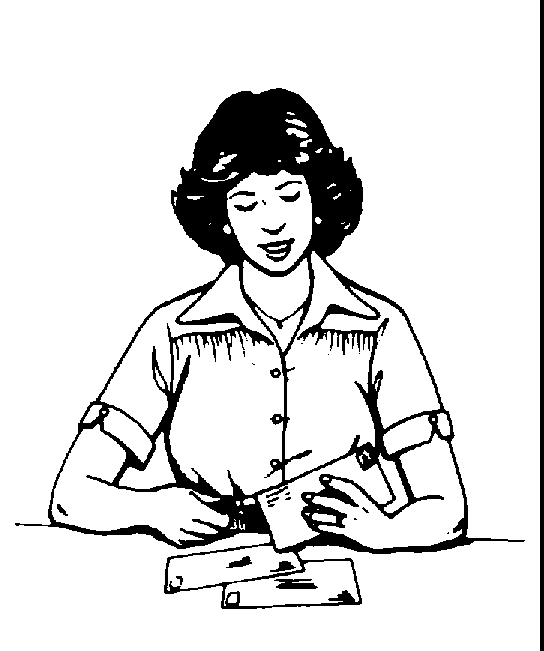
I would have sent you a letter if I had known your address.
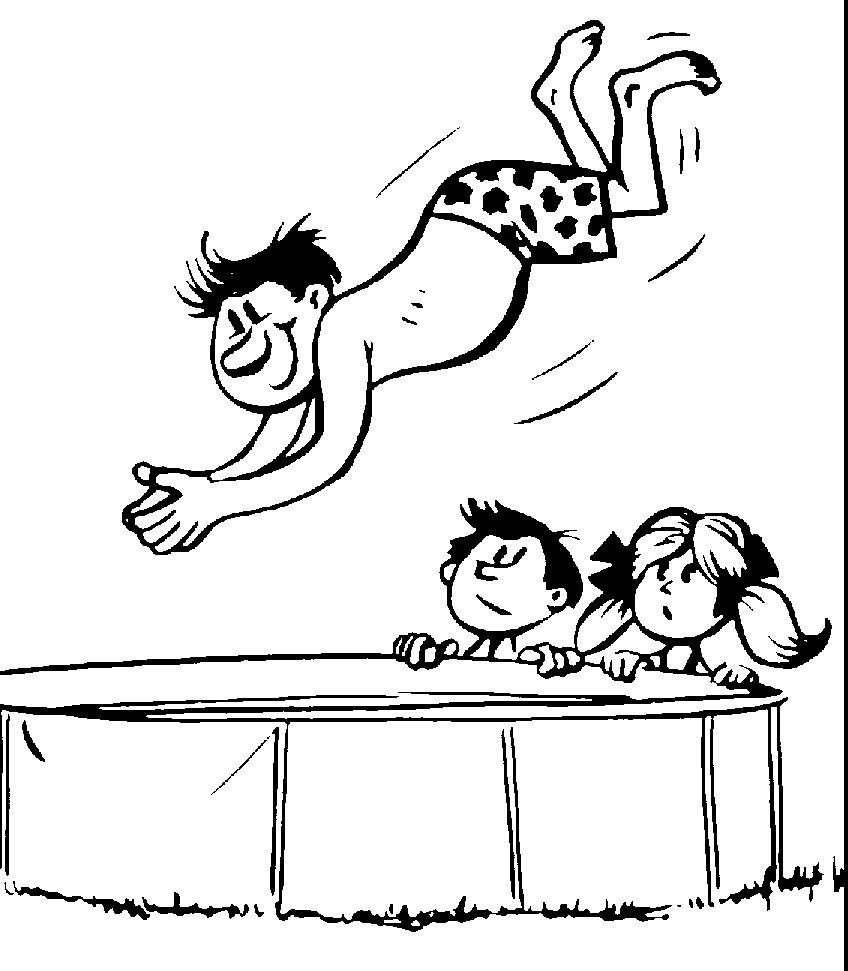
We would have bought a bigger pool if we had had more money.
11.1 KEY GRAMMAR - 3rd CONDITIONAL (WOULD HAVE + PAST PARTICIPLE)
| 3. konditionaalia
käytetään, kun kerrotaan mitä joku olisi tehnyt, tai
mitä olisi tapahtunut. Esim. I would have telephoned you yesterday if I had remembered your number! |
||||||||||||||||||||||||||||||
|
 I would have sent you a letter if I had known your address. |
 We would have bought a bigger pool if we had had more money. |
3rd CONDITIONAL -
POSITIVE
* Huom. Sivulause voi olla ennen päälausetta! |
||||||||||||||||||||||||||||||||||||||||||||||||||||||||||||||||||||||||||||||||
3rd CONDITIONAL -
NEGATIVE
|
||||||||||||||||||||||||||||||||||||||||||||||||||||||||||||||||||||||||||||||||
3rd CONDITIONAL -
QUESTIONS
|
11.5 KEY FUNCTION - ON THE TELEPHONE
PART 1 - MAKING CALLS
Dialogue 1, making a call to someone you know.
KEY PHRASES: Hello, this is........ from..............
Could I speak to ........ please?
Good morning, is that .........?
I'm fine thanks, and yourself?
How's the weather there?
Now, the reason I'm ringing you is....
Dialogue 2, making a call to someone you don't know.
| Switchboard: | Good morning, Craft Industries, can I help you? | ||
| Matti: | Good morning, Matti Virta from Finnflex here. May I speak to John Smith, please? | ||
| Switchboard: | It's ringing for you. | ||
| Matti: | Thank you. (Brrring Brrring) | ||
| John Smith: | Technical support. John Smith | ||
| Matti: | Good morning Mr. Smith. Matti Virta from Finnflex, Finland here. | ||
| John Smith: | Good morning. Now, what can I do for you, Mr Virta? |
KEY PHRASES: Good morning, can I help you?
May I speak to ....... please?
Now, what can I do for you?
Dialogue 3, making a call when you don't have a name
| Switchboard: Matti: Switchboard: Matti: Switchboard: Fred: |
Good afternoon, Rollcraft.
Can I help you? Matti Virta, Finnflex Finland here, good afternoon. Could I speak to someone in the After Sales Department please? Is it spare parts or repair service that you want? Spare parts please. Trying to connect you. (Brrring Brrring) Spare parts, Fred Parks speaking. |
|
| Matti: Fred: Matti: |
Good afternoon,
Matti Virta from Finnflex Finland here. I'd like to speak
to someone who can give me information about spare parts
for our XT 450 lathe. Oh right. You want to speak to Paul North then. Just a moment I'll get him. OK thanks. |
|
| Paul: Matti: |
Hello. Matti Virta, Finnflex, Finland. Hello. We've got one of your XT 450's and we need some information about spare parts........ |
|
KEY PHRASES: Could I speak to someone in...?
I'd like to speak to someone who can...
...who can give me information about...
You want to speak to ....... then.
OK, thanks.
Dialogue 4, Matti is asked to hold
|
 |
KEY PHRASES: Could you put me through to...?
Well, I'm ringing from Finland.
Is there a direct number to ...?
I'll try again later then. Thank you, goodbye.
11.7 KEY FUNCTION - ON THE TELEPHONE
PART 2 - RECEIVING CALLS
Dialogue 1, Matti gets a call from England, from someone he knows
Brrring Brrring
|
|
|||||||||||||||||||||||||||||||
KEY PHRASES: Yes, that's right.
Good morning, this is.... ...from .......
How's the weather today?
It's been cold and wet all week.
Oh dear.
How can I help you?
I'm ringing about ......
Dialogue 2, Matti gets a call from a stranger
Brring Brring
|
 |
KEY PHRASES: Am I speaking to...?
I'm with....
How can I help you?
I see.
Dialogue 3, the person being called is not in
Brrring Brrring
|
 |
KEY PHRASES: I'm sorry, he's not in the office at the moment.
Do you know when he'll be in?
He'll probably be back ...................
I'll ring this afternoon, then.
Dialogue 4, Matti tries to call Peter.
Brrring Brrring
Mark: Technical Support Department.
Matti: Good morning. Matti Virta here. Is Peter Jones there?
Mark: I'm afraid he's away on business right now.
Matti: Oh, when will he be back?
Mark: He'll be in the office next Monday. Can anyone else help you?
Matti: Well, it's not so important. I'll ring Monday.
Mark: Right you are, then. Goodbye.
Matti: Goodbye.
KEY PHRASES: Is ..................... there?
I'm afraid he's away on business right now.
When will he be back?
Can anybody else help you?
SUMMARY
| away on business | |||
| the Manager's | in Denmark | ||
| Sales Secretary's | on a trip | at the moment | |
| I'm afraid | he's | on holiday | right now |
| I'm sorry | she's | out | just now |
| the person you want's | having lunch | now | |
| Peter Jones's | not in | ||
| just gone out |
11.8 Pronunciation practice - Listen and repeat these phrases
11.9 KEY FUNCTION - ON THE TELEPHONE PART 3 - TAKING AND LEAVING MESSAGES
Dialogue: Matti takes a message
Brrring Brrring
Matti: Virta.
John: John Parrot, Colormix Ltd, good morning. Could I speak to Pentti Seppä please?
Matti: I'm sorry he's away on business today.
John: Will he be back tomorrow?
Matti: No, I'm sorry. He'll be back next Monday. Can anybody else help you? Or can I take a message?
John: Yes, could you tell him I called?
Matti: Certainly, could I have your name again, please?
John: Yes, it's Parrot, John Parrot.
Matti Could you spell that please?
John: Yes, P-A-R-R-O-T.
Matti: OK Mr Parrot. I'll tell him you called.
John: Thank you, good bye.
KEY PHRASES: Can I take a message?
Could you tell him I called.
Could I have your name again, please
Could you spell that, please?
I'll tell him you called.
Dialogue: Matti leaves a message
Brrring Brrring
| Tom Yeo: | Tom Yeo. | |
| Matti: | Good morning. This is Matti Virta from Finland. Is Fred there? | |
| Tom: | I'm sorry he's not. He's on holiday this week. | |
| Matti: | I see, well, would you ask him to call me on Monday, please? It's fairly urgent. | |
| Tom: | Certainly, what was your name? | |
| Matti: | Matti Virta from Finnflex. | |
| Tom: | Could you spell your name please? | |
| Matti: | Yes of course, that's Matti M-A-T-T-I, and my surname Virta, that's V-I-R-T-A | |
| Tom: | Got it, I'll tell him. |
KEY PHRASES: Would you ask him to call me?
It's fairly urgent.
My surname .....
Got it.
11.10 Pronunciation practice - Listen and repeat these phrases
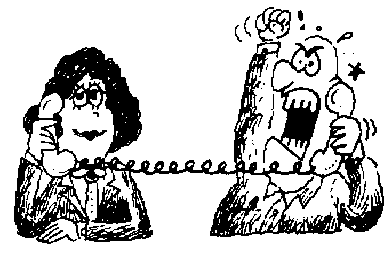
11.11 Preposition practice Fill the gaps with suitable prepositions
11.12 General phone information
Identification
In Britain and the USA, a man rarely uses the title Mr. when giving his name.
It is usual to say both first name and surname.
This is Matti Virta, from Finnflex, Finland.
My name is Bond, James Bond.
In India, Sri Lanka, and in many parts of the far and middle east, many men WILL use the title Mr., without their first names.
This is Mr. Patel from Metalware, Madras.
A woman uses either her full name, or adds the title "Mrs" or "Miss"
Good morning, this is Cathy Salter from Abingdon.
Hello, I'm Miss Janet Sharp.
The term "Ms", is used by women who do not wish to say whether they are married or not. It is quite rare among British women, but slightly more common in the USA.
Numbers
In Britain, some people answer the telephone by giving their telephone number, although inside firms it is more usual to give one's name.
Telephone numbers are given digit by digit in groups of three or four.
Double figures, e.g. 66 or 88 are stated "double six", or "double eight".
Treble figures, e.g. 444 or 555 are stated "four, double four" , or "five, double five".
Quadruple numbers, e.g. 7777 are stated "double seven, double seven"
So, the telephone number 931- 3490544 would be stated:
nine three one (pause) three four nine oh (pause) five double four.
The voice rises at the end of each group (this signifies there are more numbers to come), but it goes down at the end of the last group, to signify that this is the last group.
Practice saying the following telephone numbers 768 9465, 90-4562968,010-358-31-1658345, 971-885 9995, 966-8544732, 345 567, 922-3399777
The telephone alphabet.
INTERNATIONAL SPELLING SYSTEMS:
The standard International Radio Telecommunications spelling system is often used for spelling over the telephone
A ALPHA ei B BRAVO bii C CHARLIE sii D DELTA dii E ECHO ii F FOXTROT eff G GOLF tjii H HOTEL eitch I INDIA ai J JULIETTE tjei K KILO kei L LIMA ell M MIKE em N NOVEMBER en O OSCAR ou P PAPA pii Q QUEBEC kjiuu R ROMEO aar S SIERRA ess T TANGO tii U UNIFORM jiuu V VICTOR vii W WHISKEY daböl jiuu X X-RAY eks Y YANKEE wai Z ZULU zed
| NOTE: | Ä is said as A with two dots | |||
| Ö is said as O with two dots | ||||
| Å is said as A with a circle on top |
Spelling your name
Spelling your name is like giving numbers, groups of 3 or 4 letters (5 if the whole name has 5 letters) with a pause after each group. The voice goes up at the end of each group except the last.
| PEKKA LEHMUSKALLIO | = | PEK | KA | LEH | MUS | KAL | LIO |
11.14 SMALL TALK - Talking about Finland's political system
It can sometimes be very dangerous to talk about politics with someone you do not know very well, other subjects to avoid are religion and sex.
However, it is quite acceptable to talk about the political system and type of government of a country.
Matti and Peter are discussing the political system in Finland
Peter: What kind of government do you have in Finland?
Matti: Terrible! No, but seriously, Finland has a coalition government. We've got very many political parties here and none has more than thirty percent of the vote.
Peter: Which are the main parties?
Matti: The main parties here are the Social Democrats, the Centre Party and the National Coalition Party, that's rather like the Conservatives in England. Then there are many small parties like the Swedish People's Party, the Finnish Christian Union, the Greens and the Democratic League.
Peter: Are they all represented in the government?
Matti: Most of them are.
Peter: How often do you have elections, Matti?
Matti: Every four years, but the President is elected every six years.
Peter: Ah yes. You had a Presidential election here a few years ago, didn't you? There was a lot in our papers about it at the time. A woman nearly got in, didn't she?
Matti: That's right. Elisabeth Rehn.
Peter: Well, we've had quite a lot of experience of women leaders in Britain. By the way, what's the name of your President?
Matti: Martti Ahtisaari.
Peter: How much power does your President have?
Matti: Mmmm, difficult to say really. Many years ago the President had a lot of power, but nowadays not so much. He's more of a figurehead.
Peter: Rather like our Queen then.
11.17 Idioms - Do and Make
The word "make" usually means construction. and the word "do" usually means action
 |
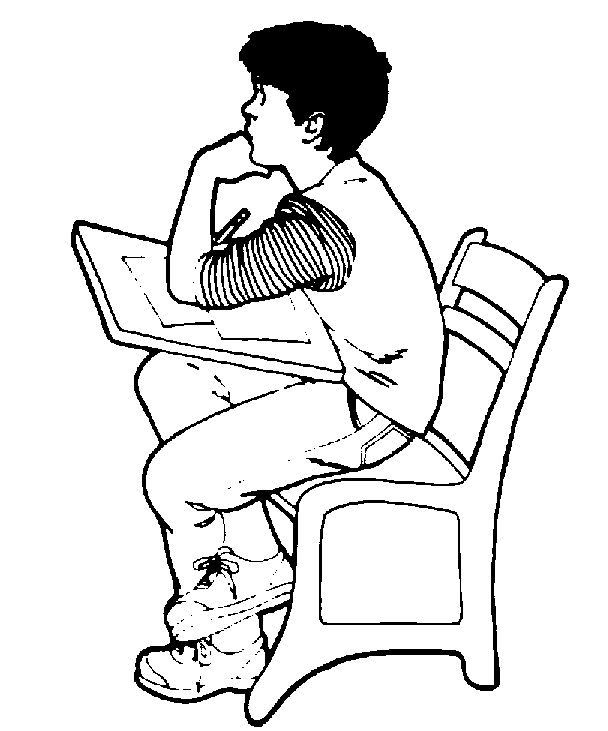 |
He has made some pizzas |
He’s doing his homework |
Both verbs have many idiomatic uses. These must be learnt by heart.
| MAKE If we "make" something - we often produce, create or construct something that was not there before:
|
||||||||||||||||||||||||||||||||||||||||||||||||||||||||||||||||||||||||||||||||||||||||||
Make also means "to force"
|
||||||||||||||||||||||||||||||||||||||||||||||||||||||||||||||||||||||||||||||||||||||||||
Make also means "cause to
be"
|

He does a lot of business on the Internet
Do often means "activity"
|
| DO also means "perform" business They do a lot of business in the USA. homework The students do homework every evening. a crossword He did a crossword while he was waiting. housework She never does any housework. to do a job Can you do a job for me, please? the shopping We always do the shopping on Saturday. the cleaning Who does the cleaning in your office? the washing up She’s very lazy, she never does the washing up. the gardening Her husband does all the gardening. |
11.18 Do or make? (use the verb in the correct form)
11.19 KEY FUNCTION - Giving advice
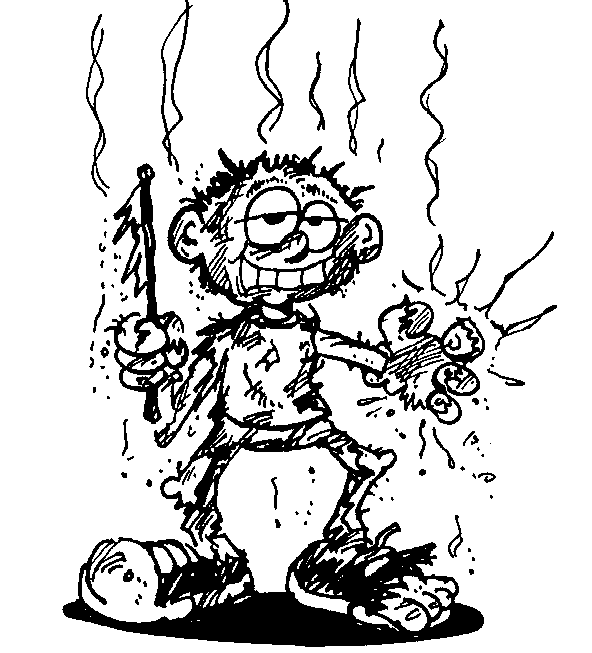
Children shouldn’t play with matches!
There are many ways to give advice - Here are some of the main ways:
SHOULD and OUGHT
|
| How to learn English If you really want to learn English you should try to spend at least 10 minutes every day learning to use new words. You ought to write each new word or phrase on a card and you should write the Finnish meaning on the other side. You should always carry some cards with you and if you have some spare time, for example while you are sitting in a bus, or in a train, take out the cards, look at one side and try to remember what is on the other side - you should also try to think of a sentence in English using that word. You should also write short stories in English. You shouldn’t be afraid of making mistakes because you learn through your mistakes. You should also try to practice speaking English whenever you have the opportunity. |
11.21 Reading for Pleasure - Getting your car ready for Winter
|
| The cold weather is
coming. How should I get
my car ready
for winter? First of all, DON’T PANIC! Modern cars are built to withstand severe winter conditions. Nearly all manufacturers test their cars thoroughly in very cold conditions. In fact, many car manufacturers use northern Lapland, where the temperatures can go down to -35o C, as their winter test centre. On this year’s Ford Overland Competition two Ford Mondeos successfully crossed Siberia in temperatures down to -60o C. One expert told us " Most new cars are OK at - 30o C, but before the weather gets too cold you should check the battery, anti-freeze, engine oil and screenwash". What anti-freeze should I use? You should buy a top quality anti-freeze. Read your car manual to see what brand the manufacturer recommends. Read the instructions on the container for the recommended percentage mix of water and anti-freeze. A 50-50 mixture should keep the radiator unfrozen to about -45o C. Should I use a different engine oil in winter? Most engine oil is 20 - 50 multigrade, which is a medium viscosity oil, and this is fine for most winter conditions. If you are going to spend long periods in cold regionss you should use an oil with lower viscosity, for example 10-30. For really cold weather the best oil is 5-50 multigrade synthetic oil.
What about the battery? You should check your battery and replace it if necessary. Older cars sometimes have small batteries which will turn the engine over for only one minute. A larger battery could turn the engine over for three minutes in cold conditions. Tyres? If you are driving on snow and ice all winter you should use studded tyres. You should first check that you are allowed to use them because they are not legal in every country. If they are not legal you can buy snow chains which you can use on snow and ice. Make sure you have good-quality tyres. In extreme cold rubber becomes brittle. Screenwash fluid? Motorists ought to use a special screenwash fluid in winter. This is usually a mixture of detergent and isopropanol. Read the instructions on the bottle. The lower the temperature, the higher the proportion of screenwash. Should I use a petrol additive? If the temperatures are below zero for long periods you should add anti-ice to the petrol. This is isopropanol and it dissolves the ice-crystals that sometimes form in petrol. 1 litre is usually sufficient for 50 litres of petrol. What about lights? Check that all your lights are working. Extra spot lamps are useful in northern areas. Drive with dipped-beam headlamps also in daytime. How should I start my car on a freezing cold morning? Brush the snow off and scrape the ice off the ice from the windows. Start the engine and run it slowly until it is warm. You should never drive fast with a cold engine. Make sure that your windscreen heater is working properly. Should I change my driving habits in winter? Yes, you must drive more carefully in winter. Do everything more slowly because braking distances are longer. Don’t accelerate fast, don’t make sudden movements on the steering wheel and don’t drive too close to the car in front. Remember too, that you may find patches of black ice on bridges and under trees. What should I do if my car skids? Take your foot off the accelerator, put the clutch down, NEVER brake. If the back wheels slide into the middle of the road, steer in that direction, if they slide towards the side of the road, steer that way. HAPPY MOTORING! |